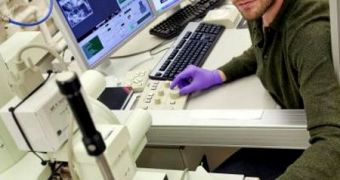A team of researchers in the United States, featuring scientists at the US Department of Energy's (DOE) Lawrence Berkeley National Laboratory (Berkeley Lab) and the Drexel University believes it may have finally solved a very limiting problem plaguing electronics today. The researchers say that batteries are at this point the major drawback in laptops and mobile phones, due to their short lifespan. But, by using supercapacitors (electrochemical capacitors), it could be that this limitation will soon be a thing of the past, the group says.
“Just think how often your fancy new mobile phone or computer has become little more than a paperweight because the battery lost its zeal for doing its job. At a time when cellphones can do more than computers could do at the beginning of the Clinton presidency, it would be an understatement to say that batteries have not been holding up their end of the mobile device bargain,” explains John Chmiola, a chemist and staff scientist at the Berkeley Lab Environmental Energy Technologies Division (EETD) Advanced Energy Technologies Department. He was the leader of the new research.
The expert adds that these materials are called supercapacitors because they have much higher energy storage densities than those in conventional batteries. Working together with Drexel University expert Yury Gogotsi and other colleagues, Chmiola published a paper in the April 23 issue of the esteemed publication Science, describing an innovative new technique for including micro-sized supercapacitors in a host of portable electronic devices. The real treat is that their advancement does not require new production methods, which means that regular microfabrication techniques should suffice for the job.
“The prospect of integrating batteries and supercapacitors with the micro-electromechanical systems (MEMS) they power represents a conceptual leap forward over existing methods for powering such devices. Furthermore, since the same fabrication processes that produced the devices needing the electrical energy also produced the devices storing that energy, we provide a framework for potentially increasing the density of microelectronic devices and allowing improved functionality, reduced complexity, and enhanced redundancy,” Chmiola explains.
“We have known for some time that supercapacitors are faster and longer-lasting alternatives to conventional batteries, so we decided to see if it would be possible to incorporate them into microelectronic devices and if there would be any advantage to doing so,” Gogotsi concludes.

 14 DAY TRIAL //
14 DAY TRIAL //